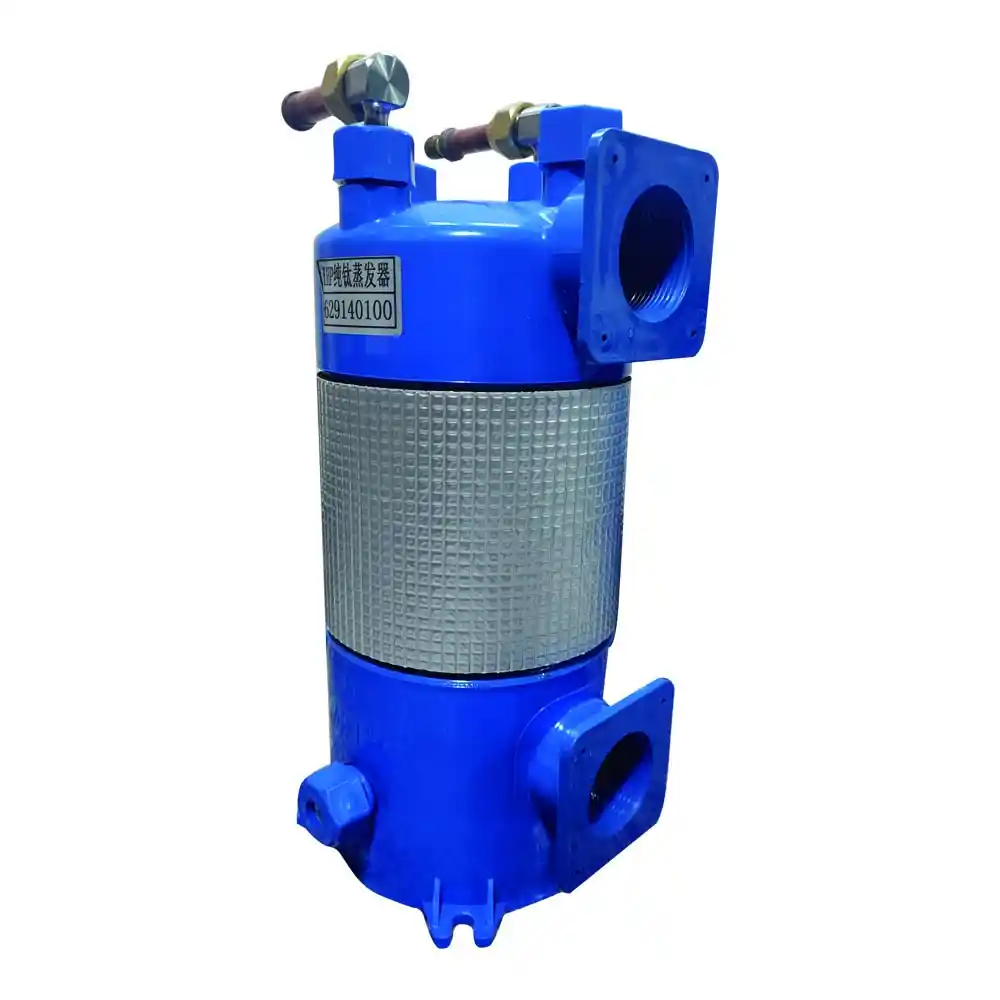1. Introduction
Biomass systems have emerged as a sustainable and environmentally friendly alternative for heat generation and energy production. These systems utilize organic materials such as wood pellets, agricultural residues, and dedicated energy crops to produce heat or electricity. To optimize the efficiency and performance of biomass systems, the integration of titanium coil heat exchangers has gained significant attention. In this article, we will explore the potential of biomass systems, discuss the role of titanium coil heat exchangers, and highlight their benefits in maximizing energy conversion.
2. Understanding Biomass Systems
Biomass systems leverage the energy stored in organic materials to generate heat or power. These systems encompass various components and processes, including fuel storage, combustion chambers, heat transfer units, and power generation mechanisms. The primary functions of biomass systems are as follows:
2.1 Fuel Storage and Handling
Biomass fuels, such as wood chips or pellets, are stored in designated containers and transported to the combustion chamber. Proper fuel handling ensures a steady and controlled supply for efficient energy conversion.
2.2 Combustion
Biomass materials undergo combustion within a specially designed chamber. The combustion process releases energy in the form of heat, which can be harnessed for various applications.
2.3 Heat Transfer
Heat generated from biomass combustion needs to be efficiently transferred to a working fluid. Heat exchangers play a crucial role in facilitating this transfer and ensuring optimal heat utilization.
2.4 Power Generation
The heat energy captured from biomass combustion can be utilized for power generation. This can involve steam generation to drive a turbine or direct use of heat for specific industrial processes.
3. The Role of Titanium Coil Heat Exchangers in Biomass Systems
Titanium coil heat exchangers are integral components within biomass systems, enabling efficient heat transfer from the combustion process to the working fluid. These heat exchangers, made from titanium due to its corrosion resistance and high heat transfer properties, offer several advantages in biomass applications:
3.1 Corrosion Resistance
Biomass combustion generates corrosive byproducts, making corrosion resistance a critical factor for heat exchangers. Titanium’s exceptional corrosion resistance ensures prolonged service life and reliable operation in biomass systems.
3.2 High Heat Transfer Efficiency
Titanium coil heat exchangers exhibit excellent thermal conductivity, enabling efficient heat transfer from the biomass combustion process to the working fluid. This efficiency maximizes energy conversion and enhances overall system performance.
3.3 Compact Design
The compact design of titanium coil heat exchangers allows for space-saving integration within biomass systems. Their small footprint ensures efficient use of available installation space and facilitates system scalability.
4. Benefits of Titanium Coil Heat Exchangers in Biomass Systems
The utilization of titanium coil heat exchangers in biomass systems offers several advantages. Let’s explore some of the key benefits:
4.1 Improved Energy Conversion
Titanium coil heat exchangers optimize heat transfer, resulting in improved energy conversion rates within biomass systems. This leads to increased overall efficiency and enhanced utilization of the available biomass fuel.
4.2 Extended Service Life
The corrosion-resistant properties of titanium ensure the longevity and durability of heat exchangers in harsh biomass combustion environments. This reduces maintenance requirements and extends the service life of the equipment.
4.3 Enhanced System Efficiency
Efficient heat transfer provided by titanium coil heat exchangers contributes to enhanced system efficiency. By maximizing the utilization of heat energy, biomass systems can achieve higher levels of thermal efficiency and reduced fuel consumption.
4.4 Environmental Sustainability
Biomass systems, coupled with titanium coil heat exchangers, offer a renewable and environmentally friendly alternative to traditional energy sources. Biomass fuels are considered carbon-neutral, as the carbon emitted during combustion is part of the natural carbon cycle.
5. Case Studies: Titanium Coil Heat Exchangers in Biomass Systems
To further illustrate the effectiveness of titanium coil heat exchangers in biomass applications, let’s examine two case studies highlighting their successful implementation:
5.1 Case Study 1: Industrial Biomass Boiler
In this case study, a large-scale industrial facility utilizes a biomass boiler for process heat generation. The biomass boiler incorporates a titanium coil heat exchanger, which efficiently transfers heat from the combustion chamber to the boiler’s working fluid. The use of titanium ensures corrosion resistance, prolonged service life, and optimal heat transfer efficiency.
| Parameter | Conventional Heat Exchanger | Titanium Coil Heat Exchanger |
|---|---|---|
| Corrosion Resistance | Moderate | Excellent |
| Heat Transfer Efficiency | Standard | High |
| Service Life | Limited | Extended |
The comparison clearly demonstrates the superiority of titanium coil heat exchangers in terms of corrosion resistance, heat transfer efficiency, and service life, making them an ideal choice for industrial biomass applications.
5.2 Case Study 2: Biomass Cogeneration Plant
In this case study, a biomass cogeneration plant combines heat and power generation using organic waste as the fuel source. The plant incorporates titanium coil heat exchangers within its heat recovery system to maximize energy conversion. The heat exchangers facilitate efficient heat transfer from the biomass combustion process to produce steam, which drives a turbine for electricity generation.
| Parameter | Conventional Heat Exchanger | Titanium Coil Heat Exchanger |
|---|---|---|
| Corrosion Resistance | Limited | Excellent |
| Heat Transfer Efficiency | Standard | High |
| System Efficiency | Moderate | Enhanced |
The comparison highlights the significant advantages of titanium coil heat exchangers in terms of corrosion resistance, heat transfer efficiency, and overall system efficiency. The biomass cogeneration plant achieves higher levels of energy conversion and reduced environmental impact.
6. Conclusion
The integration of titanium coil heat exchangers in biomass systems offers numerous benefits, including improved energy conversion, extended service life, enhanced system efficiency, and environmental sustainability. These heat exchangers, with their corrosion resistance and high heat transfer properties, play a vital role in maximizing the performance and efficiency of biomass applications. By harnessing the power of biomass and utilizing titanium coil heat exchangers, we can contribute to a more sustainable and greener future.


